Eczema and psoriasis are distinct skin diseases with a number of things in common. Both are related to problems with the immune system.
Eczema and psoriasis result in symptoms of inflamed, red, cracking and itching skin. Both are subject to flare-ups and remission periods.
The standard treatments for eczema and psoriasis are also the same, such as corticosteroid creams, and in severe cases, immunosuppressant medications. The natural remedies described below may be equally helpful for both conditions.
Eczema
Eczema, also known as atopic dermatitis, is a common skin condition. According to the NIH, it affects 10-20% of children and 5-10% of adults.
The majority of eczema cases develop between the ages of 1-5 years old. While it is primarily a childhood disease, some cases persist into adolescence and adulthood. Eczema tends to occur periodically. It can even clear up for years before returning.
Eczema symptoms can include:
- Discolored skin patches on various parts of the body
- Dry, thickened, cracked or scaly skin
- Small, raised bumps that may leak fluid and crust over
- Itching, which may be severe, often worse at night
- Raw, swollen sensitive skin
Atopic dermatitis is an inflammatory disorder caused by an immune system imbalance. Children with eczema often develop autoimmune disorders such as asthma and allergies.
Psoriasis
Psoriasis vulgaris is a chronic autoimmune disease characterized by an overgrowth of skin cells. A 2013 World Health Organization report notes that while the worldwide prevalence of psoriasis is around 2%, studies in developed countries show prevalence rates of 4.6% on average.
Psoriasis can occur at all ages, but is primarily seen in adults. Though the condition is lifelong, the severity and areas of affected skin can vary over time. Most types of psoriasis cause symptoms for weeks or months that subside for a time until the next flare up.
Psoriasis symptoms can include:
- Red plaques of skin covered in loose silvery scales
- Small scaly spots
- Skin that cracks and bleeds
- Pain and itching
- Stiff, swollen joints
Psoriasis is caused by an overactive immune system that attacks healthy skin. White blood cells trigger inflammation and increased, rapid production of skin cells, which results in psoriasis plaques.
7 Science-Backed Natural Remedies for Eczema & Psoriasis
1. Fish Oil
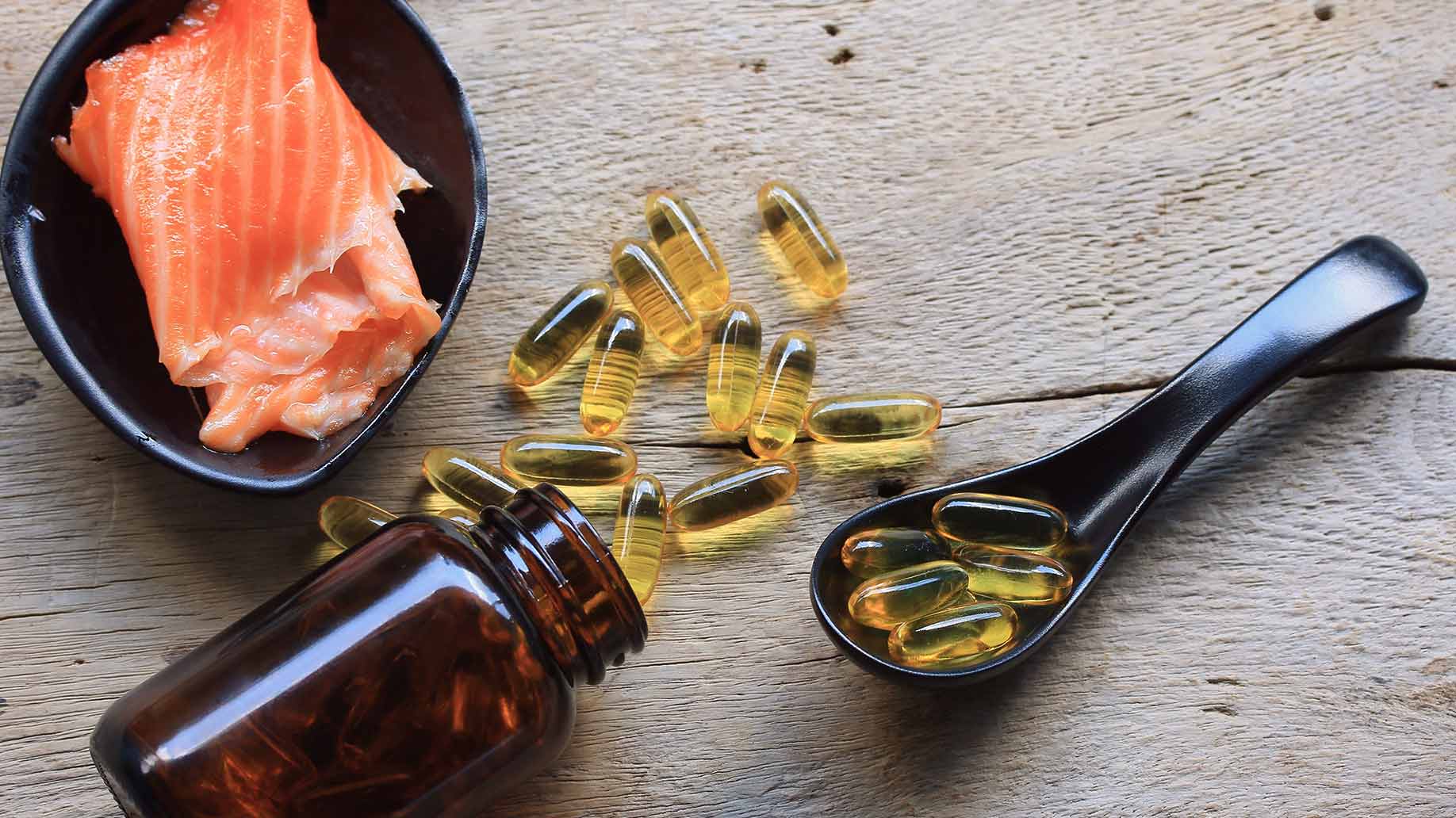
Humans evolved on a diet containing equal amounts of omega-3 and omega-6 fatty acids. Modern Western diets tend to contain about 15 times more omega-6 than omega-3.
Omega-3 fatty acids have anti-inflammatory effects, and a diet low in omega-3 increases the risk for many inflammatory diseases, including eczema and psoriasis. The best dietary source of omega-3 is oily fish.
Studies have shown that children who eat fish regularly are less likely to develop eczema and that fish oil or omega-3 supplements can improve symptoms for eczema patients.
In a Danish study, 26 patients with psoriasis were put on a low-fat diet supplemented with 30 ml of fish oil daily. After 4 months, 58% of the patients showed moderate or excellent improvement and 19% showed mild improvement. Laboratory tests revealed that the fish oil helped to inhibit the production of an inflammatory substance called leukotriene B4 which plays a role in eczema and psoriasis.
In a study published in the Journal of Internal Medicine, patients with atopic dermatitis were divided into 2 groups. The experimental group received a daily supplement containing 10 grams of fish oil. The control group received a supplement containing olive oil. After 12 weeks, the fish oil group had a significant improvement in itchiness and in overall severity of eczema.
A Swedish study published in the American Journal of Clinical Nutrition evaluated the effect of early fish consumption on allergic diseases. Researchers followed 3,285 children from birth to age 12. Approximately every 4 years, parents filled in questionnaires about lifestyle factors and symptoms of allergic diseases in their children. At age 8, all the children had their blood tested for markers of common allergies.
The researchers analyzed data on the frequency of fish consumption at age 1, and signs of allergic diseases up to age 12. They found that those who ate fish at least twice a month in their first year were 75% less likely to develop eczema, asthma, seasonal allergies or food allergies.
A randomized controlled trial published in the British Journal of Dermatology examined the efficacy of omega-3 supplementation on 53 adult patients suffering from atopic eczema. The treatment group received a daily supplement containing 5.4 grams of DHA (a type of omega-3 fatty acids found in fish). The control group received a supplement containing omega-6 fatty acids. After 8 weeks, the omega-3 group showed a significant clinical improvement in atopic eczema compared to the control group. They also had a significant reduction in blood markers for inflammation.
Method: Aim to eat at least 2 portions of oily fish a week. Examples include salmon, trout, mackerel, swordfish, sardines, herring and fresh tuna.
Try to reduce your consumption of high omega-6 vegetable oils such as sunflower oil or corn oil and replace them with olive oil or coconut oil.
Fish oil contains substantial amounts of vitamin A, so if you choose to take a fish oil supplement, do not combine it with a multivitamin. Too much vitamin A can be toxic.
Recommended:
- Omega-3 – Organic Fresh Catch Fish Oil
- Wild Alaskan Salmon Oil with Omega-3 + Vitamin D3, Sustainably Caught
2. Probiotics

People with eczema and other atopic diseases tend to have different gut bacteria than healthy people.
Digestive diseases can lead to weakened immune systems, mental health disorders, and neurological diseases. Other health issues that are affected by digestive disorders include thyroid imbalances, joint pain, skin disorders, chronic fatigue, autism, ADHD, and numerous other disorders.
Everyone, including children can benefit from probiotics. A lot of times, our beneficial microbes are accidentally wiped out by systems that are intended to get rid of bad bacteria.
A healthy gut helps our body to fight against diseases and cancer-causing cells. 80 percent of our immune system is found in our digestive system, so it is vital to maintain appropriate levels of probiotics in our gastro-intestinal system.
One study found that several species known to be associated with inflammation were significantly higher in infants with eczema. These infants also had lower levels of good bacteria that have anti-inflammatory properties. It may be possible to prevent or treat eczema by using probiotics to change the mix of gut bacteria. However, it’s unclear which particular strains of bacteria are most effective.
A study published in Experimental and Therapeutic Medicine tested the use of probiotics for the treatment of eczema in infants. Researchers randomly assigned 40 babies with eczema to treatment and control groups. All of the infants were scored using a standard diagnostic index for atopic dermatitis. Researchers also measured levels of Bifidobacterium bifidum (an anti-inflammatory bacteria) in the stool of each infant.
The babies in the treatment group received B. bifidum supplements for 4 weeks. Levels of B. bifidum in their stool samples increased sharply and their scores on the atopic dermatitis index were notably reduced. There were no significant changes in bacteria levels or dermatitis scores in the control group.
A placebo-controlled trial published in the Annals of Allergy, Asthma and Immunology investigated the effects of Lactobacillus sakei supplementation in 75 children with atopic eczema–dermatitis syndrome. Patients aged 2-10 years old were randomized to receive either a daily L sakei supplement or a daily placebo. They were scored on a diagnostic index of dermatitis before and after 12 weeks of treatment. Their blood was also tested for markers of inflammation.
There was a 31% average improvement in dermatitis scores in the probiotic group compared with a 13% improvement in the control group. Significantly more patients in the treatment group achieved improvements of at least 50%. The probiotic group also had lower levels of inflammation markers which were significantly correlated with their lower dermatitis scores.
A small study published in Clinical and Experimental Allergy tested the effects of a probiotic yogurt on 10 adult patients with intractable atopic dermatitis. The participants were randomized to receive either a yogurt containing Bifidobacterium animalis subsp. Lactis or a placebo yogurt. After 4 weeks, they were crossed over to the alternative treatment. After each intervention, symptom scores were recorded and stool samples were taken.
Scores for itch and burning improved when patients ate the probiotic yogurt. Tests showed that the probiotic dynamically altered the patients’ microbiota, increasing levels of beneficial bacteria which tend to be lower in people with dermatitis.
Method: Add probiotic foods to your diet such as yogurt, kefir, sauerkraut, Kimchi or raw milk. If you buy a commercial yogurt, look for one that contains live cultures of Lactobacillus acidophilus, Bifidobacterium and Streptococcus thermophilus.
If you choose to try a probiotic supplement, make sure it contains at least 10-15 billion CFU (colony forming units). A multi-species supplement will give you the best chance of improving your microbiome.
Some probiotic supplements also contain prebiotics, which feed the good bacteria and help it to multiply more quickly.
Recommended:
3. Oatmeal

Oats contain phenolic compounds called avenanthramides that have anti-oxidant and anti-inflammatory properties. When oats are applied topically to the skin, the avenanthramides act to reduce itching and irritation.
The high concentration of starches and beta-glucan in oats help to protect skin and keep it moisturized. Very finely ground oatmeal, known as colloidal oatmeal, is a common ingredient in lotions for dry skin or dermatitis.
Atopic dermatitis and psoriasis are often treated with medications such as topical corticosteroids.
A study published in Dermatology tested whether a topical emollient made with oats could reduce the amount of topical corticosteroids used in infants with atopic dermatitis. A total of 173 babies were randomly divided into 2 groups. The treatment group received the oats emollient and the control group did not. Parents who treated their babies with the oats emollient reduced their use of corticosteroid cream by 42%, and the infants’ dermatitis showed significant improvement. Infants’ and parents’ quality of life also significantly improved.
A clinical study presented at the Annual Meeting of the American Academy of Dermatology evaluated an oat-based skincare regimen for atopic dermatitis. A total of 50 dermatitis patients were randomized into 2 groups. The treatment group received an oat-based body cream to be used twice daily (or more often if required) and an oat-based body wash to be used once daily in the shower or bath. After 2 weeks, the patients who used the oat products had significant improvements in scores of eczema severity and perceived itchiness. They also reported decreased discomfort and improved skin texture.
Two clinical trials published in the Journal of Drugs in Dermatology evaluated the effects of a 1% colloidal oatmeal cream on patients with atopic dermatitis. In the first trial, 29 patients used the cream for 14 days. Itch severity improved immediately after application. Scores on a dermatitis assessment and eczema severity index improved by day 3. After 2 weeks, 83% of patients has a 20% or greater improvement in itch and 86% had a 20% or greater improvement in dermatitis assessment scores.
A follow-up trial evaluated the moisturizing effects of the oatmeal cream in 30 dermatitis patients. Water loss through the skin was significantly reduced and skin hydration was significantly increased.
Method: Oatmeal baths, especially with colloidal oatmeal, are a popular home remedy for eczema and psoriasis. It forms a milky dispersion that keeps the oats suspended in the water for maximum contact with your skin. You can purchase colloidal oatmeal, but it’s easy to make your own:
- Grind whole oats in a blender until they are the texture of whole wheat flour.
- Run a warm bath and shake about one cup of colloidal oatmeal into the water as it fills.
- Stir the water with your hand until the oats dissolve, then soak for 15 minutes.
Recommended:
4. Vitamin D

People with autoimmune diseases often have a genetic problem which leads to difficulties with vitamin D metabolism, causing a deficiency.
A study conducted over one year found that 58% of patients with chronic plaque psoriasis were deficient in vitamin D compared to 30% of healthy controls. In winter, vitamin D deficiency rose to 81% in psoriasis patients, but remained at 30% for the control group.
Vitamin D performs many biological functions that can help improve skin disorders. It promotes the integrity of the skin permeability barrier, suppresses inflammatory responses, enhances antimicrobial activity and inhibits over-proliferation of skin cells.
Studies have shown that vitamin D supplementation is a safe and effective treatment for eczema and psoriasis.
A Japanese open-design study tested the effects of vitamin D3 on 17 patients with psoriasis. Most of the patients had been receiving treatment for their condition, but agreed to stop taking all psoriasis medication before the start of the study. All patients were given 1 microgram of oral vitamin D3 daily. Their psoriasis was clinically evaluated every 2 weeks. After 6 months, 76% of patients displayed moderate or greater improvement.
A clinical trial published in the British Journal of Dermatology assessed efficacy of oral vitamin D3 in 85 psoriasis patients. The patients were given 0.05 micrograms of vitamin D3 daily. Their dose was increased by 0.05 micrograms every 2 weeks as long as calcium concentrations in the urine remained normal. Over the course of the study, 88% of patients has some level of clinical improvement of psoriasis and 27% had complete improvement. After 6 months of vitamin D3 therapy, the average psoriasis area severity index score was reduced from 18 to 10.
A study published in the Journal of the American Academy of Dermatology investigated the effects of vitamin D on atopic dermatitis. The researchers measured the vitamin D levels of 95 dermatitis patients and assessed the severity of their condition. They found that the frequency of winter exacerbations and of bacterial skin infections were higher in patients who had low levels of vitamin D. They then selected 22 patients with vitamin D deficiency and a history of skin infections to receive a 2000 IU vitamin D3 supplement daily. After 3 months, their atopic dermatitis symptoms showed significant improvement.
A randomized controlled trial published in the Journal of Allergy and Clinical Immunology tested vitamin D supplementation for winter-related atopic dermatitis in children. A total of 107 dermatitis patients aged 2-17 were randomly assigned to receive 1000 IU of vitamin D3 per day or a placebo. After one month, the children who took vitamin D had a clinically and statistically significant improvement in scores on an eczema severity index.
Method: Sun-exposure raises levels of vitamin D in the skin and can be helpful for eczema and psoriasis, however it’s important to take precautions to avoid sunburn. The best source of vitamin D is through dietary sources such as fish oil, however, if you have problems metabolizing vitamin D, you may need to take a daily supplement instead.
Recommended:
5. Oolong Tea
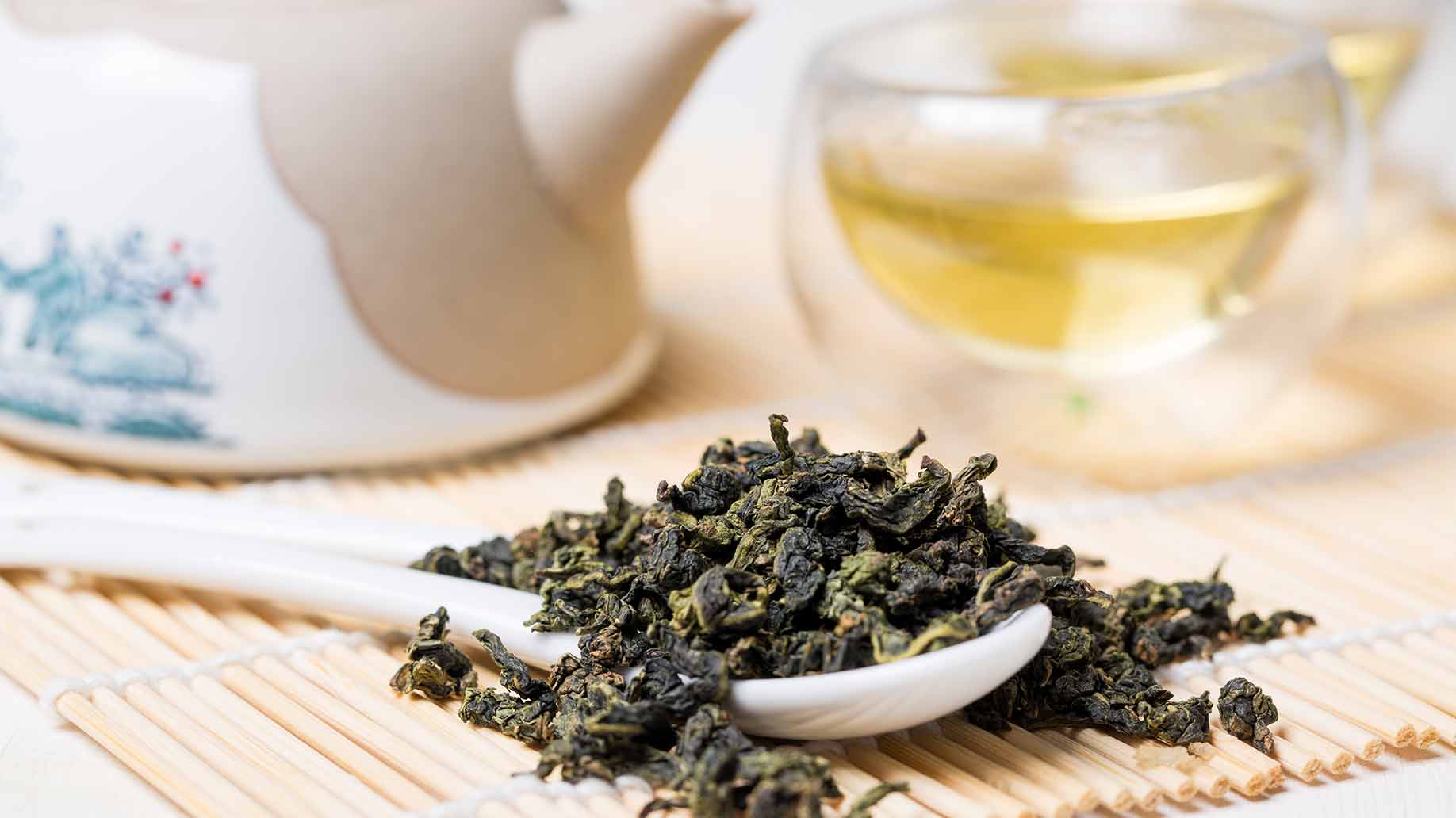
Oolong is a semi-green partially fermented tea. Studies have demonstrated that tea-drinking can suppress certain types of allergic reactions. Researchers believe that the polyphenols in oolong tea may have anti-allergic properties which help to prevent overactive immune responses.
A trial published in the Archives of Dermatology tested the effectiveness of oolong tea in 118 patients diagnosed with refractory atopic dermatitis. All of the participants were receiving standard eczema treatments at an outpatient clinic. They were instructed to drink a cup of oolong tea 3 times a day after meals. Representative skin sites were photographed at various intervals throughout the study.
After one month, 63% of patients showed a marked or moderate improvement. The initial severity of eczema had no influence on the clinical outcome. After 6 months, 54% of patients still showed a good response.
Method: To prepare the tea from loose leaves, use 2 teaspoons per cup, add freshly boiled water, steep for 5-minutes and strain. Drink 3-5 cups a day. Oolong tea has about half as much caffeine as coffee.
Recommended:
6. Oregon Grape Root

Oregon grape (Mahonia aquifolium) is not a grapevine, but a bush that produces waxy blue berries. It is commonly found in the forests of the North American Pacific coast.
The bark and root of the plant contains alkaloids with antifungal, antimicrobial and antioxidant properties.
Research on skin cells from patients with psoriasis has shown that Oregon grape root inhibits abnormal skin cell growth and reduces inflammation.
A study conducted by the Dermatology and Cosmetic Center investigated the efficacy and safety of a topical cream containing Oregon grape extract for mild-to-moderate psoriasis. A total of 200 subjects were randomized to use either the Oregon grape cream or a placebo twice a day for 12 weeks. At intervals throughout the study, a physician assessed patients’ symptoms on a psoriasis severity index and patients completed a quality of life questionnaire. Both psoriasis severity and quality of life significantly improved for subjects in the Oregon grape extract group compared to those in the control group.
A review in the American Journal of Therapeutics examined the worldwide clinical experience with Oregon grape extract topical cream for the treatment of plaque psoriasis. Reports on 3 clinical trials conducted in different countries all showed statistically significant favorable results.
In one study, patients with bilateral psoriasis were treated with Oregon grape oil cream on one side their bodies and Dovonex cream (a prescription psoriasis medication) on the other. When patients were asked to compare the results, 63% rated the Oregon grape oil cream as equal to or better than the standard dermatological cream. The researchers concluded that Oregon grape is a safe and effective treatment for patients with mild-to-moderate psoriasis.
Method: Oregon grape root creams and lotions are available from herbal product retailers. Alternatively, you can make your own by mixing 15 drops of Oregon grape essential oil into one ounce of jojoba oil.
Recommended:
7. Evening Primrose Oil
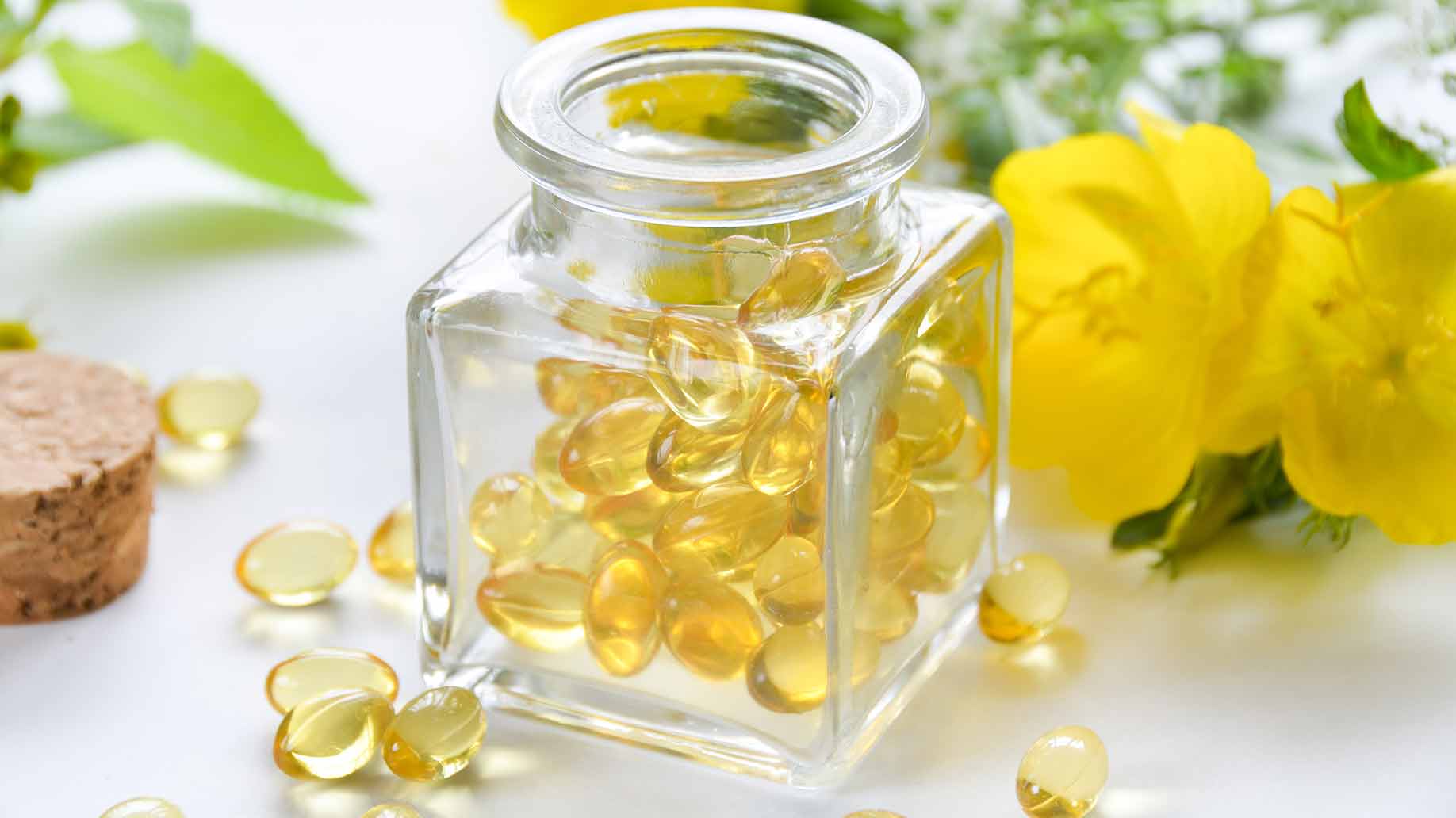
One factor in the development of atopic eczema may be a defect in the functioning of an enzyme that converts linoleic acid (found in common vegetable oils) to gamma linolenic acid.
Gamma linolenic acid is an omega-6 essential fatty acid which the body converts to substances that decrease inflammation and inhibits skin cell growth. Evening primrose oil is a rich source of gamma linolenic acid and several studies have found that it is an effective treatment for eczema.
A meta-analysis published in the British Journal of Dermatology analyzed 9 controlled trials of evening primrose oil for the treatment of atopic eczema. Four of the studies were parallel trials in which one group of patients was treated with evening primrose oil and another group was simultaneously treated with a placebo. The other 5 studies were crossover trials in which the same subjects were treated with both evening primrose oil and a placebo in random order. In all of the studies, doctors and patients both scored the severity of eczema symptoms before and after treatment.
In the parallel studies, the effect of evening primrose oil was significantly better than the placebo. Both patient’s and doctor’s scores for severity of eczema showed a highly significant improvement after treatment with evening primrose oil.
Results from the crossover trials were similar, with both patient’s and doctor’s scores for eczema symptoms showed improvement after the evening primrose oil treatment. There was a substantial and highly significant improvement in itchiness in response to the evening primrose oil, whereas this symptom showed no response with the placebo.
In studies where blood levels of gamma linolenic acid were measured, there was a positive correlation between improvements in eczema severity scores and a rise in fatty acid levels.
Method: Take one 1,000 mg or two 500 mg evening primrose oil supplement capsules daily with a meal.
Recommended:
Final Word
No two cases of eczema or psoriasis are exactly the same and a remedy that works for someone else might not be as effective for you. The only way to discover the best methods to improve your specific symptoms is to try out a number of different remedies.
If you experiment with supplements, probiotics, oolong tea or dietary changes, keep in mind that they will take time to make changes to your immune system and inflammatory responses. Most of the studies discussed above treated patients for 4-6 months, so don’t give up on a method if you fail to see immediate results.

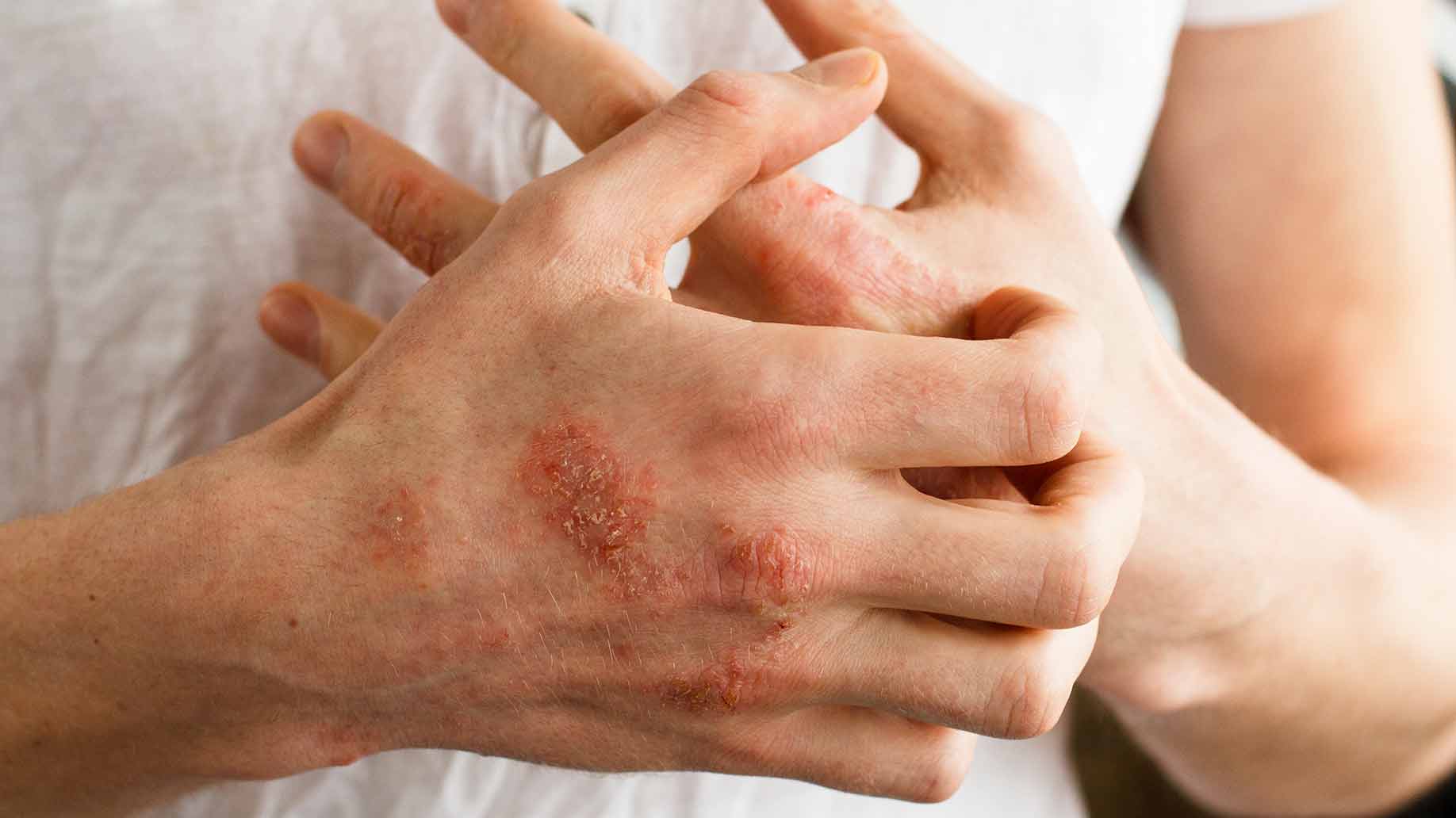
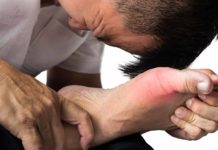







Hy! My name is Simran. I read your post thoroughly. I am also a blogger and I really really like your post. It’s a great niche. You know what it is very beneficial for all psoriasis patient. Thanks 4 sharing this post. Carry on, Best of luck.Have a nice future.
Thank you for sharing this article. I read it and told one of my friend who is suffering from eczema. Your article and others comments in which some people have discussed the another ways to treat eczema are really helpful.